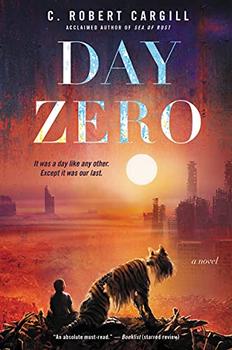Summary | Excerpt | Reviews | Beyond the book | Read-Alikes | Genres & Themes | Author Bio

Stories
by Ted ChiangExhalation is an assemblage of nine short stories and novellas written by Ted Chiang, a computer scientist, and technical and fiction writer. He published his first book, Stories of Your Life and Others in 2002. Nearly two decades later, he brings a new set of stories to readers, with fresh, visionary ideas and sensitive, sympathetic characters.
Although they are firmly planted in science fiction, Chiang's stories lack the staleness that can sometimes accompany over-done plots and themes in this genre. Instead, he approaches each story with care and intention, piecing together little capsules of narrative that are equally innovative, cerebral and wise. Some of the stories' premises are absolutely bizarre, while others come eerily close to encroaching on the "real world." Yet, they all have some degree of familiarity to them, either from characters who experience universal emotions, or plots that reveal relatable moral predicaments. These elements ground the stories.
In "The Merchant and the Alchemist's Gate," Chiang mimics an "Arabian Nights," tale-within-a-tale structure as he creates a world in which time travel abides by the rules set out in Einstein's theory of relativity. "The Great Silence" supposes that alien intelligence exists on Earth but is largely ignored by humans in pursuit of extraterrestrial alien life. "The Lifecycle of Software Objects" engages with the idea of artificial intelligence (see Beyond the Book), supposing that as AI entities become increasingly human-like, their relationships with people may take on a parent-child dynamic, wherein humans connect, teach and raise their digital companions. Other stories explore quantum mechanics, language acquisition, free will, video technologies and first contact with tribal peoples.
Those who follow Chiang will recognize some of the selections in this book from other places. "The Merchant and the Alchemist's Gate," "The Lifecycle of Software Objects," and "The Truth of Fact, the Truth of Feeling" have appeared in Subterranean Press magazine. A few other stories have appeared in anthologies and collaborative art projects, though they have been modified for this collection. Two brand-new stories are included — "Omphalos" and "Anxiety Is the Dizziness of Freedom."
One of the wonderful things about Exhalation is that these stories linger. They stick to the mind, dense enough to chew. This is largely because Chiang is comfortable leaving readers with more questions than answers. Readers are left to wonder, what fuels scientific discovery? What role should artificial intelligence play in one's life? How is knowledge created? To what extent should knowledge be shared, and with whom? Do people have free will? What are the consequences of humanity's actions? These queries are scientific, but they are also anthropological, philosophical, religious and sociological; they are questions about humanity — past, present and future.
While many authors choose to take a distanced stance when asked about their writing, leaving readers to work through their intentions, Chiang provides a chapter of "Story Notes." In this section, he dips into each of the book's nine pieces, stating his inspirations, cultural references, scientific concepts and curiosities. These insights are helpful, without revealing so much that readers feel omniscient in Chiang's worlds. It is like a brief conversation about each of the stories, a chance to inhabit the author's inventive mind.
Although this may not be a great choice for readers who find comfort in thematically-oriented stories that have tidy resolutions, those with more experimental tastes will find a lot to enjoy in Exhalation. The book offers nine distinct and fascinating worlds, making it perfect for either dipping in-and-out or reading all in one go. Sci-fi fans will appreciate the different experimental lenses through which to view humanity. Those new to the genre might find themselves hooked by the interdisciplinary threads of subjects such as sociology, anthropology, philosophy, religion, language and more.
The title story from this collection is available in full online from Lightspeed Magazine, and readers may also be interested in checking out Ted Chiang's May 2019 interview with the Asian American Writers' Workshop.
![]() This review was originally published in The BookBrowse Review in May 2019, and has been updated for the
August 2020 edition.
Click here to go to this issue.
This review was originally published in The BookBrowse Review in May 2019, and has been updated for the
August 2020 edition.
Click here to go to this issue.

If you liked Exhalation, try these:

by Anton Hur
Published 2025
Negotiating the terrain of Kazuo Ishiguro's Klara and the Sun and Emily St. John Mandel's Sea of Tranquility, a brilliant, haunting speculative novel from a #1 New York Times bestselling translator that sets out to answer the question: What does it mean to be human in a world where technology is quickly catching up to biology?

by C. Robert Cargill
Published 2022
In this harrowing apocalyptic adventure - from the author of the critically acclaimed Sea of Rust - noted novelist and co-screenwriter of Marvel's Doctor Strange C. Robert Cargill explores the fight for purpose and agency between humans and robots in a crumbling world.
Your guide toexceptional books
BookBrowse seeks out and recommends the best in contemporary fiction and nonfiction—books that not only engage and entertain but also deepen our understanding of ourselves and the world around us.